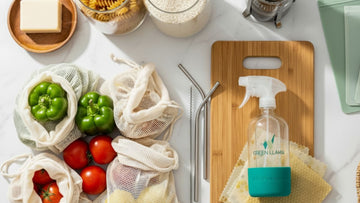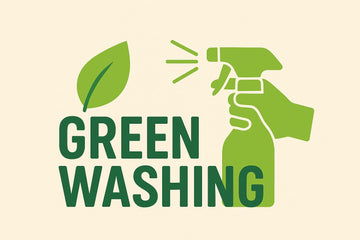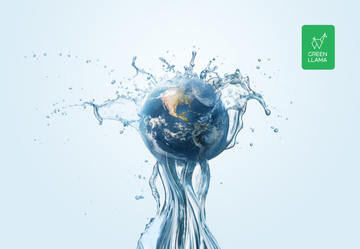Microplastics – How Tiny Plastics Create Huge Problems (and What We Can Do)
by Kay Baker on Jun 16, 2022
Microplastics: The Tiny Problem We Can’t Ignore
Quick Take
1 | Microplastics 101
Microplastics are any plastic fragments smaller than 5 mm. Because most plastics don’t biodegrade, sun, waves, and weather break them into crumbs that slip through water filters and drift on the wind. [1] Researchers have now detected these particles in Arctic snow, Antarctic ice cores and – astonishingly – in human blood. [4] One review suggests that adults ingest roughly 5 g – about the size of a credit card – of plastic every week. [5]
2 | Ripple Effects in the Ocean
Every level of marine life swallows microplastics. All inspected sea turtle species contain them. [6] Even humble zooplankton – the base of the ocean food chain – hatch more slowly and grow less when exposed. [7] Fewer zooplankton means fewer fish, and ultimately fewer seafood dinners for us.
3 | What About Our Health?
The science is still unfolding, yet early studies raise red flags. In mice, polyethylene and polystyrene particles inflame the gut, disturb healthy bacteria and reduce sperm counts. [8] [9] [10] A 2024 scoping review found microplastics lodged in eight human organ systems, from lungs to the cardiovascular system. [11] While dose matters, momentum is clear – minimizing exposure is the safer choice.
4 | Cutting Plastic at the Tap – Not the Trash
Recycling alone can’t keep pace with the projected tripling of plastic waste by 2060. [12] The real win: preventing waste before it exists. That’s where refillable, plastic-free products shine.
5 | Green Llama’s Planet-Positive Cleaners
Our mission is simple – harness The Power of Positive Cleaning™ to brighten homes without dirtying the planet. Green Llama surface cleaner tablets arrive in compostable paper; add water to a reusable glass bottle. Ingredients meet both Environmental Working Group (EWG) ratings and EPA Safer Choice criteria, so you get sparkling counters with zero guilty residue.
Llaina 🦙 says: “Kick plastic, choose fantastic refillables!”
Trust Checklist
- CAS# & safety data for each ingredient are available on request
- 90-day money-back guarantee & live support
- 24-hour correction promise for factual updates
References
- [1] Botterell Z.L.R. et al. Bioavailability and effects of microplastics on marine zooplankton: A review. Environmental Pollution 245 (2019). ↑↑
- [2] Plastic Pollution Coalition. “Humans inhale a credit card’s worth of microplastics every week.” (2024) ↑
- [3] Stanford Medicine. “Microplastics and our health: What the science says.” (2025) ↑
- [4] Leslie H.A. et al. Discovery and quantification of plastic particle pollution in human blood. Environment International 163 (2022). ↑
- [5] South Seattle Emerald. “How Much Plastic Do We Ingest?” (2024) ↑
- [6] Peterson M.L. et al. Incorporating local adaptation into forecasts of species' distribution. Global Change Biology 25 (2019). ↑
- [7] Botterell Z.L.R. et al. Bioavailability and effects of microplastics on marine zooplankton. Environmental Pollution 245 (2019). ↑
- [8] Li B. et al. Polyethylene microplastics affect the distribution of gut microbiota. Chemosphere 244 (2020): 125492. ↑
- [9] Jin H. et al. Polystyrene microplastics induced male reproductive toxicity. Journal of Hazardous Materials 401 (2021): 123430. ↑
- [10] Sudipta S. B. Microplastics and human health: unveiling the gut microbiome disruption and chronic disease risks. PMID: 39669275 ↑
- [11] Roslan N.S. et al. Journal of Global Health 14 (2024): 04179 ↑
- [12] Lau W.W.Y. et al. Evaluating scenarios toward zero plastic pollution. Science 369.6510 (2020): 1455–1461. ↑





